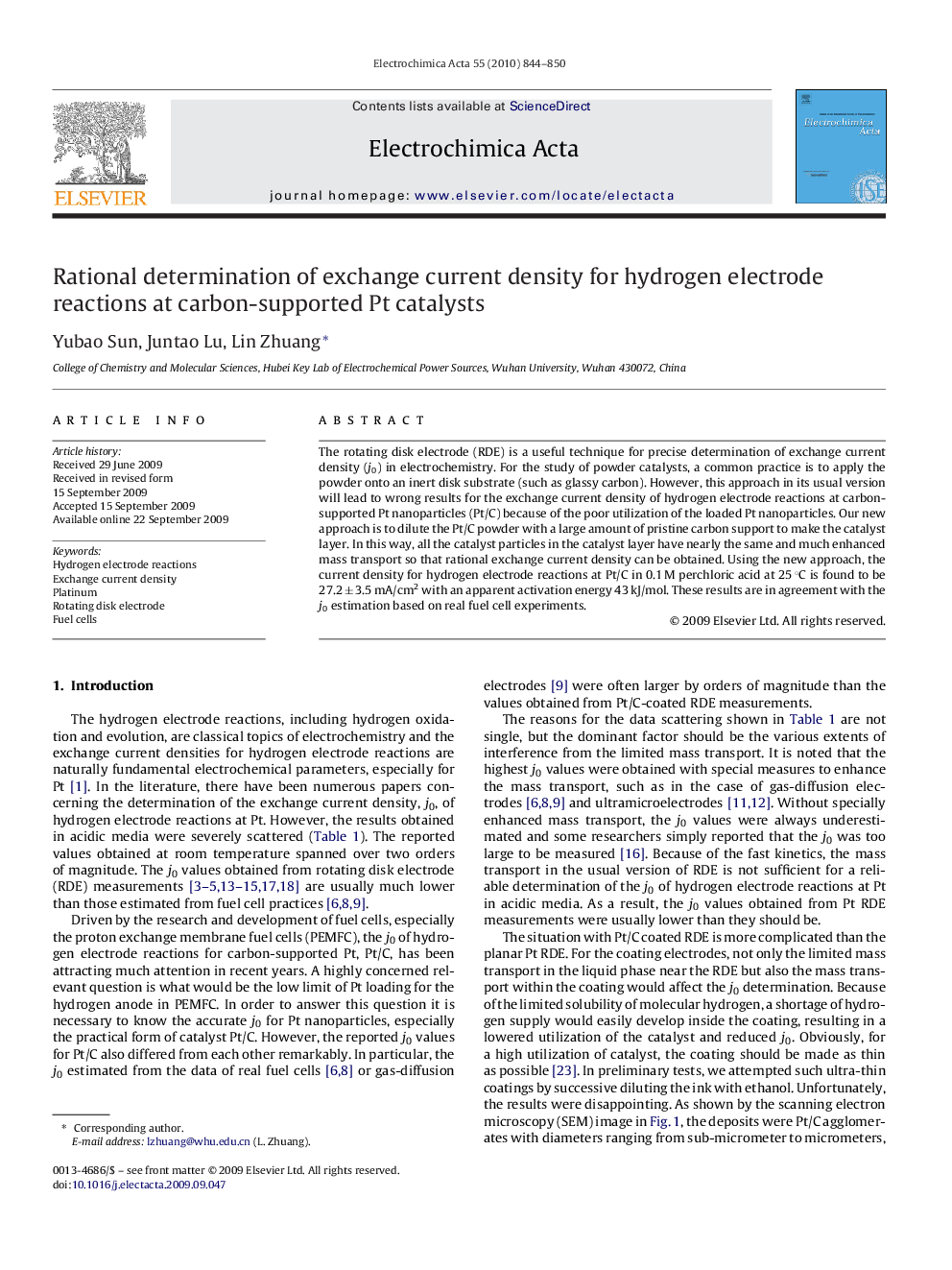| Article ID | Journal | Published Year | Pages | File Type |
|---|---|---|---|---|
| 191211 | Electrochimica Acta | 2010 | 7 Pages |
The rotating disk electrode (RDE) is a useful technique for precise determination of exchange current density (j0) in electrochemistry. For the study of powder catalysts, a common practice is to apply the powder onto an inert disk substrate (such as glassy carbon). However, this approach in its usual version will lead to wrong results for the exchange current density of hydrogen electrode reactions at carbon-supported Pt nanoparticles (Pt/C) because of the poor utilization of the loaded Pt nanoparticles. Our new approach is to dilute the Pt/C powder with a large amount of pristine carbon support to make the catalyst layer. In this way, all the catalyst particles in the catalyst layer have nearly the same and much enhanced mass transport so that rational exchange current density can be obtained. Using the new approach, the current density for hydrogen electrode reactions at Pt/C in 0.1 M perchloric acid at 25 °C is found to be 27.2 ± 3.5 mA/cm2 with an apparent activation energy 43 kJ/mol. These results are in agreement with the j0 estimation based on real fuel cell experiments.
